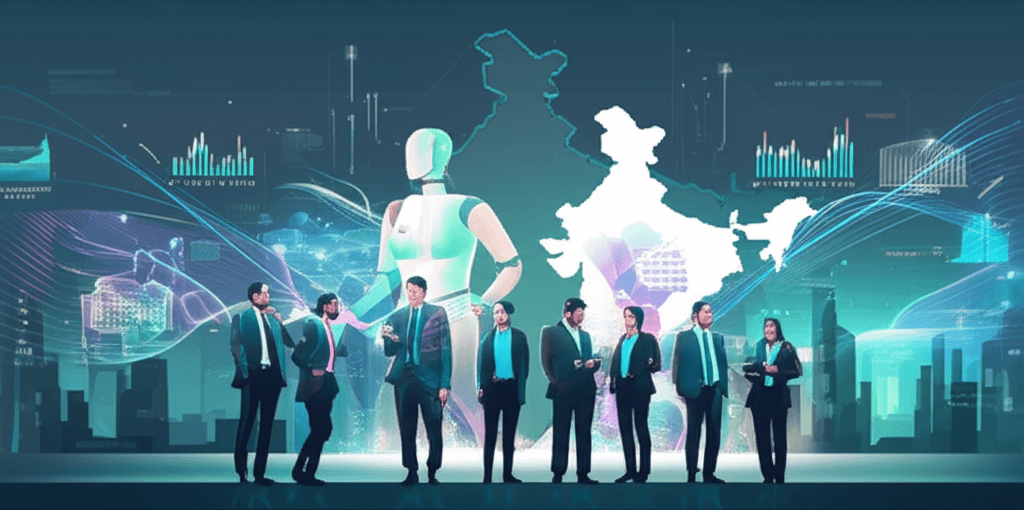India Unleashes AI: 93% Leaders Deploy Agents, Remaking Business and Jobs
A staggering 93% of Indian leaders are deploying AI, signaling a strategic reset that reshapes work and fosters human-AI collaboration.
August 21, 2025

A sweeping wave of artificial intelligence adoption is poised to fundamentally reshape the Indian business landscape, with a staggering 93% of the nation's leaders planning to deploy AI agents within the next 12 to 18 months, according to Microsoft's 2025 Work Trend Index.[1][2] This near-unanimous intent signals a decisive shift from experimental AI implementation to strategic, widespread integration aimed at augmenting workforce capabilities and reimagining core business operations.[3][4] The report underscores that India is firmly in its "AI-first era," with an unprecedented pace of AI agility as organizations move to embed this technology into their daily functions to drive transformation.[4][5] This rapid embrace of AI is not merely a technological upgrade but a strategic reset, with 90% of Indian business leaders—the highest proportion globally—viewing the current period as a pivotal time to rethink fundamental strategies and workforce models.[1][4] The primary motivation for this large-scale adoption is the pursuit of productivity gains, a top priority cited by nearly two-thirds of leaders.[1]
The impending deployment of AI agents is set to catalyze a significant restructuring of the workforce, with companies actively preparing for a new generation of job roles centered around human-AI collaboration.[4] An overwhelming 92% of Indian leaders are considering adding AI-specific positions to their organizational charts.[3][6] These emerging roles are expected to include AI workflow designers, software operators, and "agent bosses" tasked with managing teams of AI agents to optimize productivity and enhance operational efficiency.[6] This trend suggests a future where hybrid teams of humans and AI agents become the norm, fundamentally altering traditional hierarchical structures in favor of more fluid and adaptive models.[5] The report highlights the rise of "Frontier Firms," forward-looking organizations that are already leading this charge by redesigning their operations around this collaborative framework.[4][7] Within these pioneering companies, 59% of leaders are already utilizing AI agents to automate workflows and business processes across entire teams, demonstrating a tangible shift towards more agile and scalable operations.[1][3]
This strategic pivot towards an AI-integrated future is also compelling a re-evaluation of skill sets and talent development. Recognizing that technology alone is insufficient, 51% of leaders have identified upskilling as a top priority over the next 12 to 18 months.[1][6] The expectation is that AI training will become a core responsibility for management, with 63% of managers anticipating this shift within the next five years.[6] This focus on continuous learning is crucial as organizations look to not only automate tasks but also to build more complex systems. In fact, 57% of Indian business leaders expect their teams to construct multi-agent systems to automate intricate tasks, signaling a move towards a more sophisticated use of AI where digital agents collaborate to achieve complex business objectives.[3][6] The Indian workforce appears ready for this transition, with high levels of familiarity with AI agents reported among both leaders (80%) and employees (66%), suggesting a strong foundation for this technological and cultural transformation.[1][4]
The findings from Microsoft's report paint a clear picture of a nation on the brink of a profound, AI-driven transformation. India's business leaders are not just cautiously experimenting with artificial intelligence but are moving with conviction and urgency to embed it at the core of their operations.[7][5] This widespread commitment to deploying AI agents, coupled with the proactive creation of new job roles and a strong emphasis on upskilling, positions India to be a significant player in shaping the future of work.[1] The move from individual AI tools to integrated human-agent teams and multi-agent systems represents a new organizational blueprint.[6] As companies harness AI as a "thought partner" to fuel creativity, accelerate decision-making, and redefine collaboration, the promise of AI is rapidly turning into measurable proof of enhanced productivity, innovation, and profitability across the Indian economic landscape.[4][5]